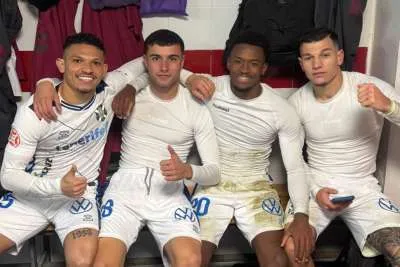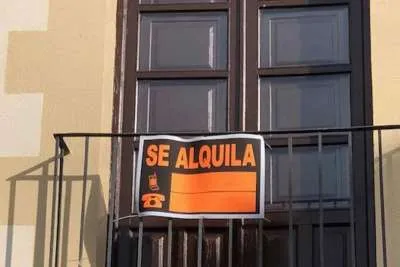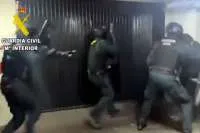How to Deal Blackjack Like a Pro: A Step-by-Step Guide for Beginners
- 10-05-2025
- Business
- collaborative post
- Photo Credit: Freepik
Blackjack is one of the most popular casino games worldwide, and being a skilled dealer is crucial for the smooth operation of the game. Whether you’re a beginner or someone looking to refine your skills, learning how to deal blackjack like a pro can elevate the gaming experience for both you and the players at your table.
In this step-by-step guide, we'll cover everything from handling cash bets to changing decks and maintaining table procedures, helping you master the essentials of professional blackjack dealing.
Colouring Up Players
When a player decides to leave your table, you need to colour them up. Collect the smaller denomination chips and stack them neatly on the left side of the table. Organise them by value to clearly display the total. Then, take the equivalent in higher denomination chips and move them to the right side of the table.
Announce, "Colour up $100," for amounts at or above $100, unless your house requires announcements for smaller amounts too. Hand the larger chips to the player. If a player leaves with only a few chips, no colouring up is necessary. However, if someone attempts to leave with large stacks of red chips, stop them for colouring up.
Handling Cash Plays
Casinos generally prefer players to use chips. If a player wants to use cash instead, it's called "money plays." Players often announce their intention, but if they simply place money in the betting area without saying anything, ask whether they intend to play cash or convert it into chips.
Once confirmed, make the approval call: "Money Plays $20" and wait for a Floor Supervisor's approval. Some players may dislike having their cash touched, so call out "Money Plays to the Table Limit" when needed, clarifying that the cash is only valid within minimum and maximum table limits.
FIRST is a unique platform that brings together the best online blackjack UK sites and casino news in one place. If you're looking to explore new platforms or find trusted blackjack games online, FIRST provides a complete, updated list of reputable options.
Dealing with Cash Bets
When players choose cash over chips, pick up the money, straighten it, and spread it out for the cameras. Folded bills are not acceptable. Play proceeds as usual. If the player loses, display the cash openly, verify the amount, and deposit it into the drop box.
If the player wins, verify the cash and provide the correct amount of chips. In case of actions like splitting or doubling down, always confirm the cash amount first. Stay alert, as some players might attempt to grab their money and leave; notify security immediately if such a situation occurs.
Changing the Deck
Decks are replaced regularly to prevent any manipulation. In shoe games, decks change every eight hours; handheld games change decks every two hours. The Floor Supervisor will remove the old deck, open a fresh pack, check the cards, and place them into the discard rack.
Spreading the Cards for Inspection
As a dealer, take the cards from the discard rack and spread them face up across the table. Spread them evenly to prevent any gaps, helping the surveillance team inspect them easily. After checking the faces, flip the cards and spread them again to check the backs for marks. Once verified, place them in the discard rack or directly in the shoe if using multiple decks.
Dealing with Multiple Hands
Players may play two or three hands, depending on house rules. They might have to match the table minimum for each hand. Always deal the first hand before allowing action on the second. When dealing with multiple hands in handheld games, use one of two methods: pitch the second hand in front of the second bet, or place it neatly to allow easy monitoring for tampering. If the dealer’s upcard is an Ace and insurance is offered, players may check both hands before deciding.
Dead Game Procedures
When there are no players at a table, you still have duties. First, tidy your chip rack and "clear your hands." For shoe games, shuffle the cards. If no new players arrive after shuffling, ask the floor to cut the deck, place it in the shoe, and burn a card once a new player sits. For handheld games, spread the deck face down. Always maintain a clean and inviting table setup.
Table Maintenance
If the layout appears dirty or chairs are messy, request the floor’s permission to tidy up. Use the provided brush to clean small debris from the felt, starting from the centre and using long strokes. Never cross your arms or put your hands in your pockets. Maintain a friendly appearance by smiling and making eye contact with passersby.
Knowing Table Minimums and Maximums
Always know your table’s minimum and maximum betting limits. If the floor asks you to adjust the sign, use the switches behind it. If a player bets below the minimum and you notice after cards are dealt, play out the hand, but instruct the player to meet the minimum next round.
Handling Foreign Cheques
If a player brings chips from another casino, recognise them as foreign cheques. Call out "Foreign Cheques" and await floor instructions. If approved, place the foreign cheque on the left side of the table and exchange it for your casino’s chips from the rack. Deposit the foreign cheque into the drop box. If not accepted, return the chip and suggest visiting the cage.
Alert and Approval Calls
Dealers must communicate through verbal calls. "Approval Calls" require floor confirmation before proceeding, while "Alert Calls" simply inform the floor without needing a response. Each casino has its own rules, but generally, any action involving $100 or more requires an approval call. Strong communication is your best defence when dealing.
Approval Call Examples:
- Foreign cheques: "Foreign Cheques"
- Player doubling on a risky hand: "Doubling on Hard 12"
- Player doubling on blackjack: "Doubling Down on a Blackjack"
- Even money request: "Even Money on Blackjack"
- Change $100 bill: "Change $100"
- Cheque exchange: "Cheque Change $100"
- Cash betting: "Money Plays $100"
- Colouring up: "Colour Up $100"
- Big bet deviation: "Cheques Play"
- Dropped card: "Card Down"
- Dropped cheque: "Cheque Down"
- Marker-related actions: "Marker" or "Marker Down"
- Other unusual events: "Floor"
Alert Call Examples:
- Change $20 bill: "Change $20"
- Start shuffle: "Shuffling"
- End shuffle: "Rolling"
- Dealer cuts deck: "Dealer's Cut"
- Double down for less: "Doubling Down for Less"
- Bet after card dealt: "No Bet"
Gamble Responsibly: Gambling should be enjoyed as a form of entertainment, not a way to earn money. Always gamble within your financial means and set limits to stay in control. You must be 18 or older to participate in gambling activities. If you or someone you know has a gambling problem, seek help from organisations like FEJAR (Federación Española de Jugadores de Azar Rehabilitados) at www.fejar.org. Stay safe and gamble responsibly.



























































